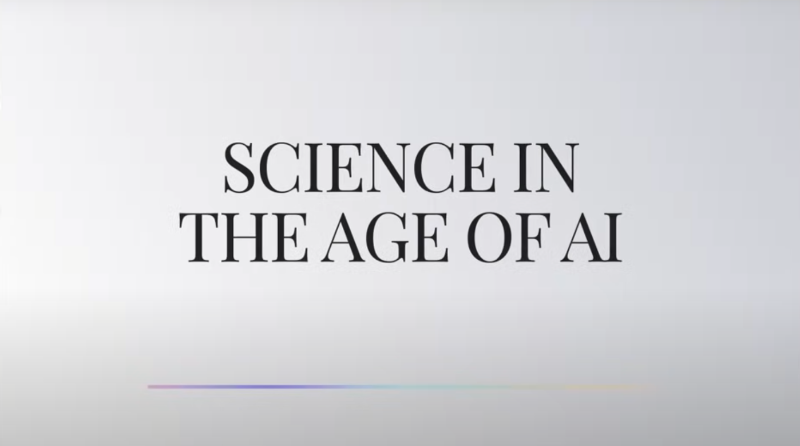by Juntendo University Research Promotion Center
PAI-1 genetic variations impact blood clotting and inflammation in COVID-19, potentially guiding personalized treatments. Credit: Dr. Beate Heissig from Juntendo University
Despite global vaccination efforts, COVID-19 continues to pose significant risks, leading to severe complications and fatalities. These risks are driven by disrupted coagulation, impaired fibrinolysis, which is the process of breaking blood clots, and heightened inflammatory responses.
The fibrinolytic system, crucial for maintaining balance within the coagulation cascade, relies on plasmin-mediated fibrin degradation.
Plasminogen activators convert plasminogen into plasmin, an enzyme that breaks down blood clots. Elevated levels of plasminogen activator inhibitor-1 (PAI-1) in COVID-19 patients disrupt this balance, leading to a hypofibrinolytic state with reduced plasmin generation, impaired clot dissolution, and a heightened risk of thrombosis.
The situation is further complicated by polymorphisms in the PAI-1 gene, particularly the 4G/5G polymorphism in its promoter region, which has been linked to various cardiovascular conditions.
A study from Japan, published in Frontiers in Immunology on August 30, 2024, investigates how the 4G/5G polymorphism influences thrombotic and inflammatory responses in Japanese patients with COVID-19, shedding light on the genetic factors contributing to variations in COVID-19 outcomes.
This research was conducted by Specially Appointed Associate Professor Beate Heissig and Associate Professor Koichi Hattori from Juntendo University Graduate School of Medicine, in collaboration with Dr. Tetiana Yatsenko from Juntendo University, and the Palladin Institute of Biochemistry, National Academy of Sciences of Ukraine, Kyiv.
Researchers conducted a case-control study to examine the impact of the 4G/5G polymorphism on COVID-19 severity. Blood samples were collected from patients, and DNA was extracted and genotyped to identify the polymorphism.
Patients were categorized based on disease severity using LEOSS criteria, which included hospitalization, oxygen supplementation, and ICU admission.
The study assessed markers of endothelial dysfunction, including PAI-1 transcript and protein levels, as well as other thrombosis and inflammation markers. Additionally, the researchers analyzed the expression of NFκB and KLF2 and the effects of IL-1β on endothelial cells to understand the relationship between PAI-1 polymorphisms and COVID-19 severity.
The study reveals that the 4G and 5G alleles of the PAI-1 promoter polymorphism exert distinct effects on fibrinolysis, thrombosis risk, and inflammatory responses.
Lead researcher Dr. Heissig explains, "The 4G allele is linked to fibrinolysis inhibition and thrombosis risk, whereas the 5G allele is associated with increased fibrinolysis activity and overactivation of inflammation and immune response-associated growth factors in the body."
Specifically, the 4G allele is associated with elevated PAI-1 levels, impairing clot breakdown and increasing thrombosis risk. This allele correlates with lower IL-1β levels and higher NFκB activity in PBMCs, exacerbating clot formation by reducing clot degradation.
Conversely, the 5G allele is characterized by lower PAI-1 levels, promoting enhanced fibrinolysis and more active cytokine responses. It is associated with higher cytokine levels, potential inflammation-induced endothelial dysfunction, and more pronounced clot breakdown.
Comorbidities such as obesity, diabetes, and hypertension can influence PAI-1 expression and COVID-19 severity by altering fibrinolytic activity and increasing thrombotic risk. However, the study found no direct correlation between these comorbidities or clinical biomarkers and the genotypes for the +43 G>A or 4G/5G PAI-1 polymorphisms.
The findings of this study have significant implications for managing and treating COVID-19, particularly in identifying individuals at higher risk of severe disease. Understanding the role of the 4G/5G polymorphism in COVID-19 severity could lead to personalized treatment strategies.
Dr. Heissig adds, "Establishing the genotype could help estimate the risk for inflammation-induced thrombosis and cytokine storms, allowing targeted therapies to manage endothelial dysfunction and reduce thrombosis risk. A key component in these therapies is endothelial dysfunction, which is an important risk factor for many cardiovascular diseases, including myocardial infarction and stroke.
"For high-risk patients based on their genotype, physicians might consider anti-thrombotic or anti-inflammatory therapies to prevent severe complications."
This study contributes to the growing body of research on genetic factors influencing disease outcomes, particularly in COVID-19. The findings align with broader research highlighting the impact of genetic polymorphisms on disease susceptibility and progression.
Understanding genetic variations like the 4G/5G polymorphism enhances our knowledge of disease mechanisms and opens avenues for precision medicine approaches in treating not only COVID-19 but also other diseases with similar genetic underpinnings.
In summary, the study highlights the significance of the 4G/5G polymorphism in the PAI-1 gene promoter as a factor influencing COVID-19 severity and endothelial dysfunction. Integrating genetic information into clinical practice can help identify and manage high-risk patients, ultimately improving outcomes and reducing the burden of COVID-19.
Future research should explore the potential of PAI-1 inhibitors and other therapeutic interventions to mitigate the impact of the 4G/5G polymorphism on COVID-19 outcomes.
More information: Tetiana Yatsenko et al, The influence of 4G/5G polymorphism in the plasminogen-activator-inhibitor-1 promoter on COVID-19 severity and endothelial dysfunction, Frontiers in Immunology (2024). DOI: 10.3389/fimmu.2024.1445294
Journal information: Frontiers in Immunology
Provided by Juntendo University Research Promotion Center








Post comments